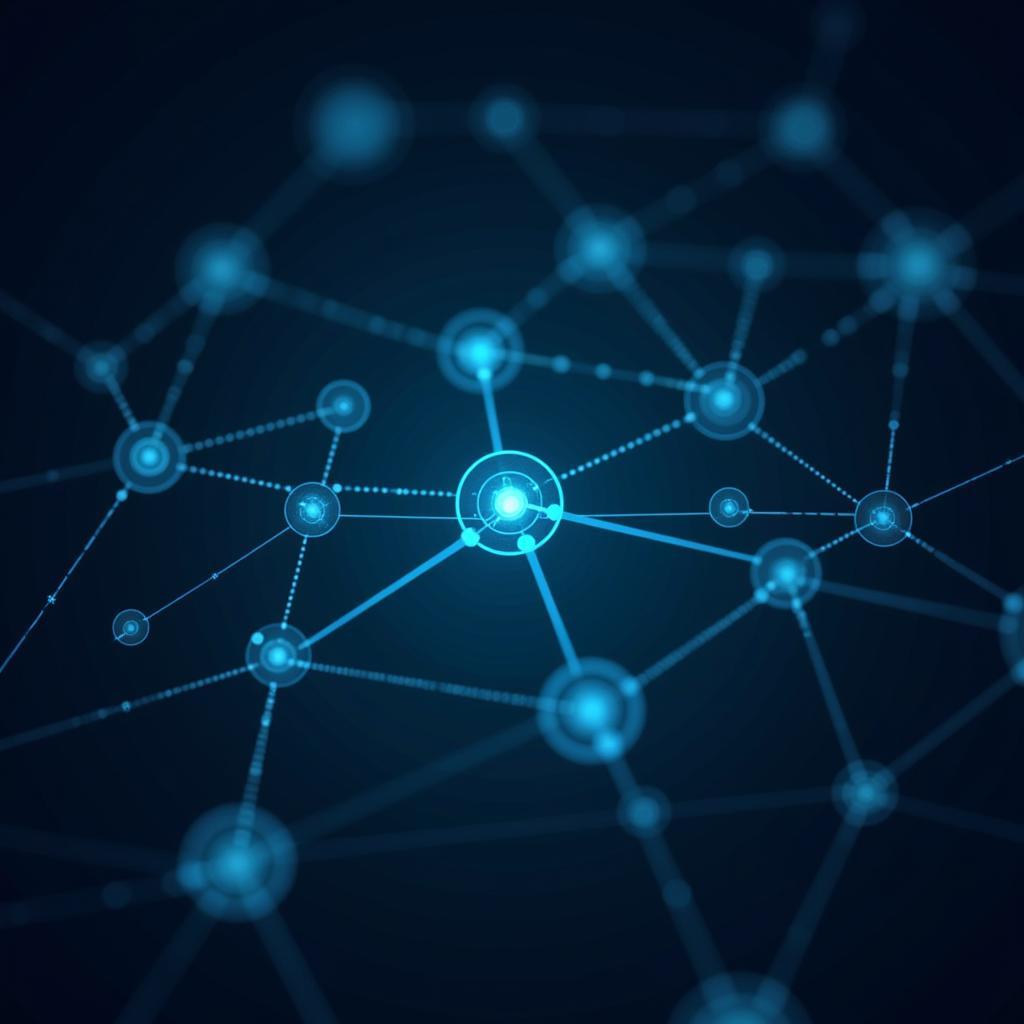The transition from industrial to postindustrial societies brought significant shifts in economic paradigms. While tangible goods like coal and steel once reigned supreme, the most important commodity in a postindustrial society is undoubtedly something far less tangible: knowledge.
 The interconnected network of knowledge sharing in the digital age
The interconnected network of knowledge sharing in the digital age
In today’s interconnected world, knowledge is power. It fuels innovation, drives economic growth, and shapes social progress. Unlike finite resources, knowledge is infinitely expandable and shareable, making it a valuable asset in a world grappling with resource scarcity and environmental concerns.
The Power of Knowledge in a Postindustrial World
The rise of the internet and digital technologies has democratized access to information, leading to an unprecedented explosion of knowledge creation and dissemination. This readily available information empowers individuals, businesses, and governments to:
- Drive Innovation: Knowledge fosters creativity and ingenuity, leading to the development of new technologies, products, and services.
- Enhance Productivity: Informed decision-making, fueled by data and insights, enhances efficiency and productivity across industries.
- Solve Complex Problems: From climate change to global pandemics, knowledge equips us with the tools to understand and address complex challenges.
Investing in Human Capital: The Key to Unlocking Knowledge
While information is readily available, the ability to process, analyze, and apply it effectively is what truly differentiates individuals and societies in the postindustrial era. This is where human capital – the skills, knowledge, and experience possessed by individuals – becomes paramount.
 Students engaged in collaborative learning using digital devices
Students engaged in collaborative learning using digital devices
Investing in education, training, and lifelong learning is crucial to cultivating a skilled and adaptable workforce. By equipping individuals with the tools to navigate the complexities of a knowledge-based economy, societies can unlock their full potential for innovation and growth.
Bridging the Digital Divide: Ensuring Equitable Access to Knowledge
However, the transformative power of knowledge can only be fully realized when access is equitable. The digital divide, the gap between those who have access to digital technologies and those who don’t, threatens to exacerbate existing inequalities.
Addressing this divide requires a multi-pronged approach, including:
- Investing in digital infrastructure: Expanding internet connectivity, particularly in underserved communities, is essential.
- Promoting digital literacy: Equipping individuals with the skills to use digital technologies effectively is crucial for meaningful participation in the digital economy.
- Creating inclusive learning opportunities: Ensuring access to quality education and training opportunities for all, regardless of background or socioeconomic status, is vital.
Beyond Information: Cultivating Critical Thinking and Ethical Decision-Making
In an era of information overload, it’s not enough to simply consume information passively. The most important skill in a postindustrial society is the ability to think critically, evaluate information objectively, and make sound judgments.
 A group of people engaged in a thoughtful discussion, analyzing information and perspectives
A group of people engaged in a thoughtful discussion, analyzing information and perspectives
Furthermore, ethical considerations become increasingly important as we grapple with the implications of artificial intelligence, data privacy, and the potential for technological disruption. Nurturing a strong ethical compass alongside knowledge acquisition is essential for creating a just and equitable postindustrial society.
Conclusion
In conclusion, while tangible commodities still hold value, the most important commodity in a postindustrial society is undoubtedly knowledge. By investing in human capital, bridging the digital divide, and cultivating critical thinking and ethical decision-making, we can harness the power of knowledge to create a more just, equitable, and prosperous future for all.